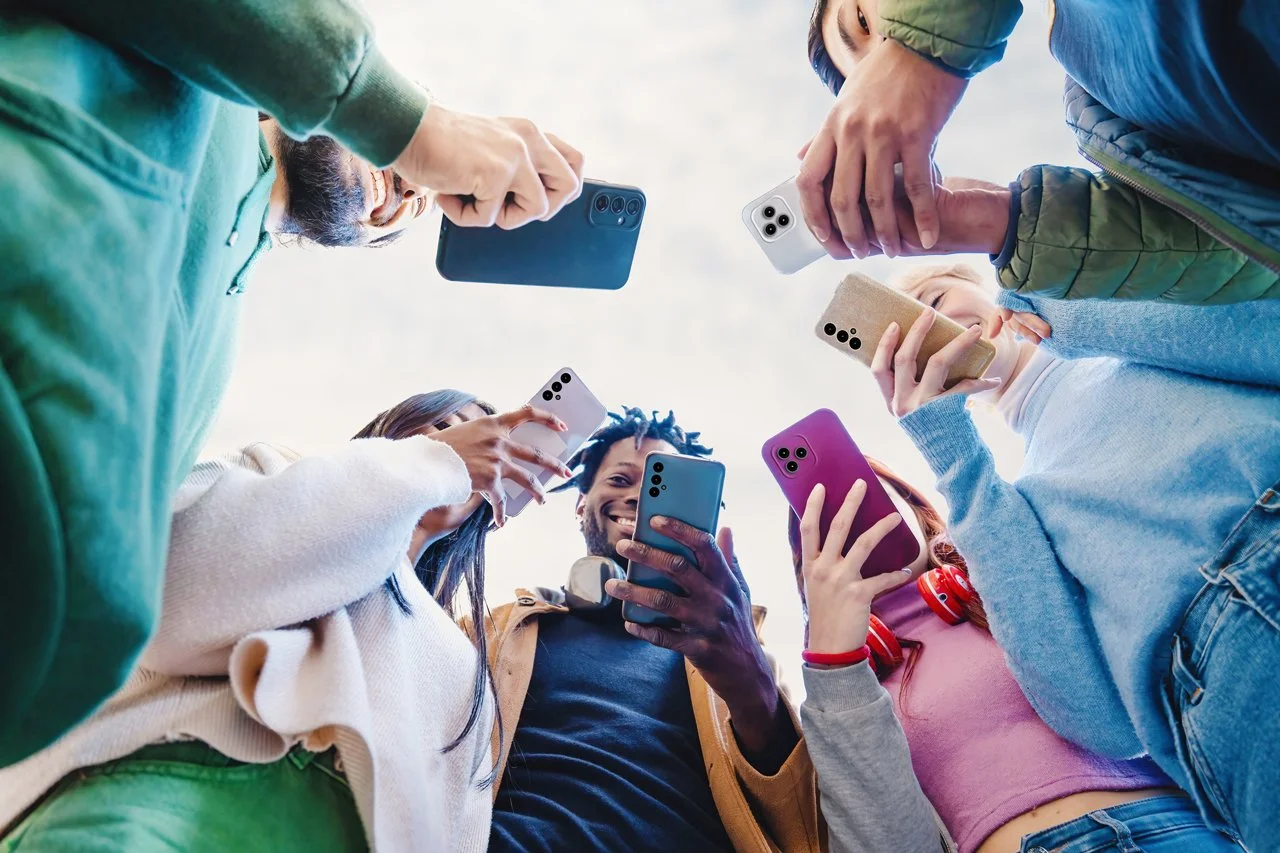The Gen Z Connection Code
Decoding how the youth engage, disengage, cancel, and forgive - and ultimately what drives or diminishes brand loyalty
It’s easy to get spooked by what you hear about Gen Z. They’re often portrayed as the generation that will cancel you in a heartbeat — hypercritical, unforgiving, and chronically online. But our latest survey paints a far more grounded picture. Yes, they’re discerning. They notice missteps, hold brands accountable, and disengage quickly when something feels off. But they’re also equally receptive, forgiving, and surprisingly generous when brands show integrity and genuine effort.
Think of this as your cheat code to understanding how Gen Z connect — how they discover, disconnect, and redeem trust when the relationship between brand and audience is tested.
Discovery: Real People, Real Worlds
For Gen Z, discovery happens everywhere - but always through people. 85% first encounter brands online, with TikTok’s ‘For You Page’ alone capturing 60% of their attention. But this digital-first behaviour doesn’t mean they live exclusively behind screens. Nearly half (48%) also value discovering brands in person - through in-store experiences, everyday encounters, or word-of-mouth moments that feel tangible and lived.
TikTok has become their new search engine - a place to find real voices, unfiltered reviews, and products validated by peers rather than polished campaigns. Authenticity isn’t just a buzzword; it’s a filtering mechanism. They trust human experience over corporate narrative, and that preference for truth - whether digital or physical - shapes how they build first impressions.
When asked where they prefer to engage with brands, TikTok leads (69%), followed by physical stores (55%), Instagram (53%), and television (51%). Platforms like gaming (7%), X/Twitter (16%), podcasts (16%), and radio (19%) fall behind.
The takeaway? Discovery isn’t about ubiquity. It’s about being present and real in spaces that reflect their lives. Brands that can connect both online and offline, with consistency and humanity, create lasting first impressions.
Connection: What Makes Content Stick
With this generation, showing up is the easy part - connecting is not. For Gen Z, meaningful engagement comes from feeling seen. Two in three (67%) say they engage most with entertaining content, while just over half (51%) are drawn to messaging that mirrors their values. Discounts and giveaways (48%) still capture attention, but tone and intention matter far more than tactics.
This generation doesn’t expect every brand to weigh in on every issue. What they do expect is honesty, accessibility, and emotional intelligence. They want brands that stand for something - but not everything. Overstretching on causes feels hollow; focus feels human. Affordable products, cultural awareness, and good design communicate just as much about a brand’s values as statements or slogans ever could.
And while life feels heavy, they welcome lightness. Humour and wit - used thoughtfully - go a long way. To them, it’s not that deep, and that’s the point. For Gen Z, authenticity isn’t a mood board; it’s the experience of being treated fairly and spoken to with respect: realistic standards, good customer service, and the humility to own mistakes matter more than perfect presentation. They’re not looking for brands to perform humanity; they’re looking for brands that practice it.
Disconnection: When the Trust Wavers
Gen Z’s awareness cuts both ways - it’s what makes them attentive, but also quick to withdraw. Poor customer service (69%), unrealistic standards (52%), ignored feedback (52%), and forced attempts at relatability (50%) all cause trust to erode. The initial response to these shortcomings is mainly subtle: 33% stop purchasing, 24% quietly disengage, and 15% unfollow brands online.
These early signals are not final - they’re warnings. They indicate when the relationship is becoming imbalanced. Brands that listen and act can often repair the connection before it breaks entirely. For Gen Z, being acknowledged is an act of respect. When ignored, it feels like a betrayal. The brands that survive small slips are the ones that treat feedback not as noise, but as dialogue.
Accountability: Where the Line is Drawn
Some breaches, however, go beyond recovery. False advertising (89%), hidden fees (86%), tone-deaf campaigns (86%), unethical practices (86%), data mishandling (83%), and offensive conduct such as racism or sexism (36%) mark clear moral boundaries. To Gen Z, these aren’t marketing errors - they’re ethical failures.
And yet, this is not a generation of permanent excommunication. When brands show accountability, they respond. Nearly four in five (79%) are open to genuine apologies that acknowledge wrongdoing; 78% appreciate full responsibility; and 73% value visible change. Only 4% say nothing could redeem a brand that sincerely tries. Mistakes, when handled with transparency and humility, become moments of “re-humanisation” - proof that a brand is willing to grow.
Cancel culture, in this light, isn’t destruction; it’s dialogue. None of the respondents (0%) said cancel culture is irrelevant. Forty-five percent use it actively to hold brands accountable, while 36% apply it selectively for serious offences. Others disengage more quietly - unfollowing (51%), unsubscribing (54%), or switching brands (44%). For Gen Z, accountability mirrors the rules of personal relationships: fairness, respect, and reciprocity.
Redemption: Earning the Second Chance
Where many brands see failure, Gen Z sees growth. They don’t expect perfection; they expect progress. 67% say they would give a brand a second chance if meaningful change is shown, and 32% might, depending on the situation. Words alone are not enough - they want to see that lessons were learnt.
Redemption, to them, is human. It’s about consistency, action, and humility. Apologies must translate into change: improved behaviour, visible proof, and genuine listening. This is how trust is rebuilt - not through performance, but through presence.
When brands engage in this way, something remarkable happens: accountability transforms into loyalty. Those that stumble but recover with integrity often emerge stronger than before. To Gen Z, the ability to admit imperfection is a sign of self-awareness, not weakness. It’s the same grace they grant themselves — and they expect it from the brands they support.
Loyalty: When You Get it Right
When brands align with Gen Z’s values, the reward is commitment. Affordable pricing (66%), shared values (62%), good design (60%), and cultural awareness (58%) all strengthen connection. Meeting the youth where they’re at, humour, and social consciousness create further resonance.
Most youth (69%) follow brands actively on social media, and 59% actively engage with them on a daily basis. The myth that Gen Z “skip ads” is outdated - they skip irrelevance, not advertising. If the content feels human, entertaining, and honest, they’ll not only engage; they’ll advocate.
The Human Blueprint
Attraction, disconnection, and redemption - these are not generational quirks; they’re simply human responses. Gen Z engage with brands the way they engage with people: they notice, they care, they forgive, they hold accountability, and they expect growth.
This generation isn’t defined by outrage. They’re defined by reciprocity. They reward honesty over perfection, action over words, and humility over performance. For brands, that’s liberating. You don’t have to be flawless - you just have to be real.
Meet them where they are, listen when you falter, and respond with sincerity. Do that, and the audience once considered “intimidating” becomes your most loyal, discerning, and deeply human community.
Written by,
Jessica Lyne
YDx Research Analyst

